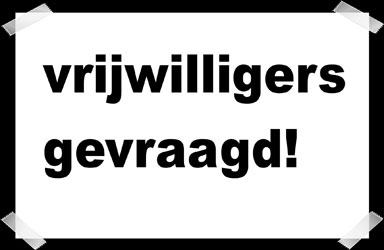Op basis van talloze wetenschappelijke studies en ervaringen van patiënten onderbouwen Frank Twisk en Dr. Michael Maes de stelling dat CGT/GET bij veel ME(CVS)-patiënten potentieel (zeer) nadelig uitwerkt. Een puik werkje waarvoor felicitaties van onze kant!
Aan de hand van wetenschappelijk onderzoek in de afgelopen decennia wordt aangetoond dat kenmerkende ME/CVS klachten (verminderde inspanningscapaciteit, lage “herstelcapaciteit”/post-exertional malaise, pijn en cognitieve klachten, zioals concentreren, onthouden etc.) door verscheidene studies bevestigd en/of verklaard worden worden.
Tevens wordt aan de hand van studies de belangrijke biologische afwijkingen, m.n. ontregeling van het afweersysteem (inflammatie, immuundysfunctie), oxidatieve-en-nitrosatieve stress, channelopathie en een slechte stressresponse/onderaktieve HPA-as), waarmee die kenmerkende klachten verklaard kunnen worden, objektief onderbouwd.
Maar wat nog veel belangrijker is…
Zowel de karakteristieke klachten als onderliggende pathofysiologische afwijkingen versterken door lichamelijke inspanning, zeker als die regelmatig gedaan worden en, in weerwil van lichamelijke signalen, steeds verder uitgebreid wordt (zoals bij CGT/GET).
De auteurs betogen dan ook dat het medisch-ethisch onaanvaardbaar is om ME/CVS-patiënten te onderwerpen aan CGT/GET (of CGT/GET met limieten/Nijs), zeker als de gevolgen van (regelmatige) inspanning niet objektief gemeten worden, bijvoorbeeld m.b.v. bloedonderzoek, dubbele fietstesten en neurokognitieve testen.
In weerwil van de gevaren worden ME/CVS-patiënten in Belgische referentiecentra nog steeds onderworpen aan deze potentieel schadelijke “revalidatietherapie” (klik hier).
I will prescribe regimens for the good of my patients according to my ability and my judgment and never do harm to anyone.
(Eed van Hippocrates)
Lees hier het persbericht.
A review on Cognitive Behavorial Therapy (CBT) and Graded Exercise Therapy (GET) in Myalgic Encephalomyelitis (ME)/Chronic Fatigue Syndrome (CFS): is not only ineffective and not evidence-based, but also potentially harmful for many patients with ME/CFS.
Neuro Endocrinol Lett. 2009 Aug 26;30(3):284-299.
Twisk FNM, Maes M.
Benign Myalgic Encephalomyelitis (ME) / Chronic Fatigue Syndrome (CFS) is a debilitating disease which, despite numerous biological abnormalities has remained highly controversial.
Notwithstanding the medical pathogenesis of ME/CFS, the (bio)psychosocial model is adopted by many governmental organizations and medical profes-sio-nals to legitimize the combination of Cognitive Behavioral Therapy (CBT) and Graded Exercise Therapy (GET) for ME/CFS. Justified by this model CBT and GET aim at eliminating presumed psychogenic and socially induced maintaining factors and reversing deconditioning, respectively.
In this review we invalidate the (bio)psychosocial model for ME/CFS and demonstrate that the success claim for CBT/GET to treat ME/CFS is unjust. CBT/GET is not only hardly more effective than non-interventions or standard medical care, but many patients report that the therapy had affected them adversely, the majority of them even reporting substantial deterioration.
Moreover, this review shows that exertion and thus GET most likely have a negative impact on many ME/CFS patients. Exertion induces post-exertional malaise with a decreased physical performance/aerobic capacity, increased muscoskeletal pain, neurocognitive impairment, “fatigue”, and weakness, and a long lasting “recovery” time.
This can be explained by findings that exertion may amplify pre-existing pathophysiological abnormalities underpinning ME/CFS, such as inflammation, immune dysfunction, oxidative and nitrosative stress, channelopathy, defective stress response mechanisms and a hypoactive hypothalamic-pituitary-adrenal axis. We conclude that it is unethical to treat patients with ME/CFS with ineffective, non-evidence-based and potentially harmful “rehabilitation therapies”, such as CBT/GET.
PMID: 19855350 [PubMed – as supplied by publisher]
De volledige tekst kunt u hier gratis opvragen of hier downloaden.







